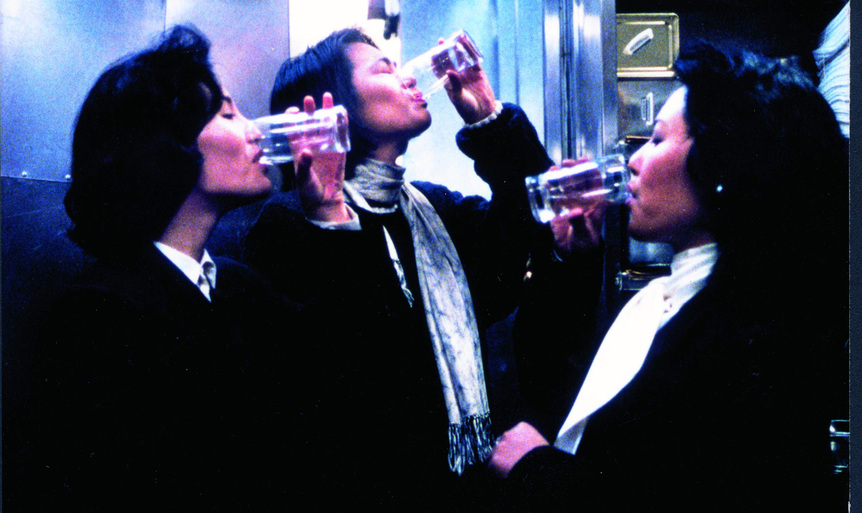
R
E
V N
E
X
T
The third installment of “Mobile M+: Moving Images,” proved to be a tearjerker. Screened back-to-back on a Saturday afternoon, the three films featured in the program examined the expectations, dreams and disparities of immigrants under the overarching theme of “Dreams.”
The day began with the 1990 feature-length film Full Moon in New York, an early picture by renowned Hong Kong director Stanley Kwan, whose acclaimed works include Love Unto Waste (1986) and Rouge (1988). Lauded for his humanistic portrayals, with particular sensitivity toward sexuality and gender roles, the plot of Full Moon in New York epitomizes Kwan’s style, intertwining the stories of three Chinese women—from Hong Kong, Taiwan and the mainland, respectively—in New York.
The film opens with the wedding of Chao Hong (played by Siqin Gaowa), a mainland Chinese woman who has relocated to New York to marry a Chinese-American man. Emphasis is placed on her language barrier, which makes her displacement in an alien culture immediately evident. As her story progresses, Chao makes enormous efforts to adapt to Western culture, but still suffers from homesickness and grief, especially with her husband failing to understand Chao’s strong filial desire to bring her mother—a survivor of the Cultural Revolution—to New York.
Another character, Li Feng Jian (played by Maggie Cheung), is a financially secure, career-driven woman from Hong Kong, who operates a restaurant in Chinatown with her father and dabbles in real estate in both the United States and her native city. Li’s assertiveness is illustrated in an early scene where we see her removing her high heel on the street to slap a man who had sexually harassed her. Throughout the film, Li struggles with her sexual identity as a lesbian, as she attempts to appease her father’s desire to see her marry a man.
The last character, Wang Hsiung Ping, is a Taiwanese actress (played by Sylvia Chang), who finds herself uncertain of her future plans after her breakup with her American boyfriend who she had been living with. Upon a visit to her father’s house, she discovers that he has been sexually abusing a mainland Chinese woman whom he had been living with and mentoring as a writer. The truth shatters Wang’s relationship with her father, leaving her further at loss.
With a bleak, gray cinematic palette—a result of Kwan’s deliberate manipulation of color film—Full Moon in New York weaves three stories, each centered on a different facet of displacement in the lives of women who find a bond in their shared despair. Chao struggles to assimilate with her new cultural identity, for the sake of her marriage. Meanwhile questions about one’s self-identity are also raised in Wang’s theatre auditions, particularly in one instance where she is questioned, “What makes a Chinese woman or a Japanese woman think she can play Macbeth?”
The film ends with the women sharing a bottle of liquor on a building rooftop upon New York’s first snowfall of the season. Kwan asserts that the narrative of the film is deliberately left open-ended, so that one may imagine the future of these women and their journeys ahead.
Still from CHANG CHIEN-CHI’s “China Town,” 1992–2011, film, 20 mins. Courtesy the artist, Magnum Photos and Chi-Wen Gallery, Taipei.
Keeping with the New York setting, the screening continued with American experimental filmmaker Lynne Sachs’s Your Day is My Night (2013), followed by China Town (1992–2011), shot by Taiwanese photographer Chien-chi Chang. Although not as entertaining as a box-office feature, both films shed light on the heartbreaking stories of the many illegal Chinese immigrants in the United States, who work low-paid, manual jobs in hopes of providing a better life for their families back home.
Denise Tsui is assistant editor at ArtAsiaPacific.





